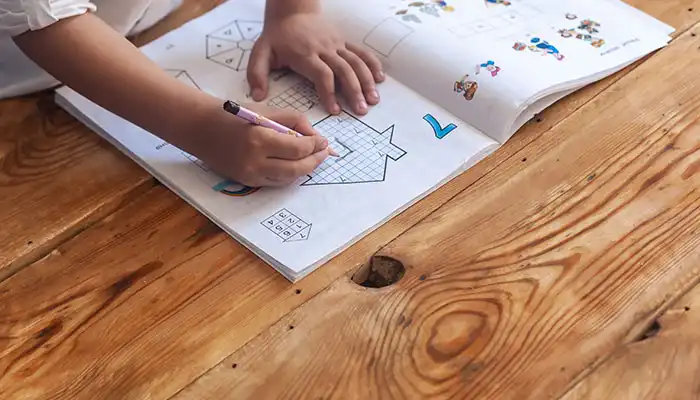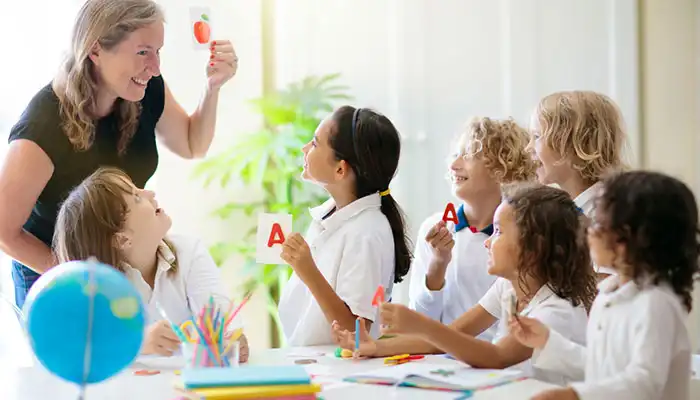Making the Most of Free Printable Worksheets Preschoolers at Home
Free Printable Worksheets Preschoolers at Home schooling at a perfect time for parents, who always have the demand to educate their preschoolers while keeping them entertained and active, usually with a budget restricted by day to day expenses. If you are a busy parent with a restricted schedule looking for ways to keep your preschooler active and help them have a head start before entering school without spending month’s worth of money on buying resources for study. Our service will solve your problems, and free printable worksheets for preschoolers at home will be the best entertainment and source of knowledge for your kid.
Why Free Printable Worksheets Preschoolers at Home Matter
In case you are wondering why Free Printable Worksheets Preschoolers at Home for 2 3 4 5 6 7 year olds at home are so important, read on. First, will give your child a routine. Second, it will empower them to learn. Finally, they will help you keep your child at home busy and provide you with invaluable free time. Do you have to your child a good education at home? Well, that answer is NO!!! The worksheets have been carefully designed with a lot of background work so that they can be completed independently (by the child) and you can also help them assess and learn.
Picture this. The skies are gloomy, and the preschooler in your house is going bonkers. Plopping them down in front of a screen isn’t an option you wish to act on. Instead, you pull out a bundle of printable worksheets. You found them online. Now, they can learn how to read with worksheets or something about number recognition, and finally put those colouring sheets they love to death to good use. That’s the magic of printable worksheets for preschoolers free download that are available at home.

Types of Free Printable Worksheets Preschoolers at Home
One thing should be clear: not all worksheets are equal when it comes to their intended impact on targeting very specific skills. But the variety is great, and we had to group them. Here is a summary of the most popular types of free printable worksheets for preschoolers at home, and why each one is important.
-
Alphabet and Literacy Worksheets
There is perhaps one thing above all that a preschooler must master; the alphabet. Alphabet and literacy workpages are guaranteed to be your child’s final introduction to letters and their related noises, and their prologue to forming words.
Imagine your child drawing the outline of the letter ‘A’ on a worksheet. He is not just tracing lines. He is developing muscle memory that later will help him write independently. Now picture him colouring the apple next to the letter ‘A’. He is simultaneously making a visual connection between the letter and the sound it makes. It’s straightforward, but it works.
In such worksheets, you would find activities such as tracing letters or a little riddle that asks children to match letters with images of objects, or perhaps even a minuscule word game. The whole idea behind it: to make learning read more playful.
-
Math and Number Worksheets
Numbers are always seen everywhere. Therefore, you should start teaching numbering and appreciating the beauty of Maths and numbers to your child as soon as possible. Math and number practise sheets include a good resource of learning basic Maths: counting, number recognition, simple addition and many more.
Picture your little one working on a counting worksheet, scooping up all the yellow rubber ducks and counting one, two, three, and four of them. That child is doing more than just counting ducks: they’re building the basis for everything to come when it comes to maths. And in doing so, because these worksheets are awesome, they’ll be having fun, too.
The worksheets include simple number tracing, counting items in pictures, and rudimentary addition or subtraction. They’re a great way to teach your child about maths in an engaging way.
-
Shapes and Colouring Pages
If your child needs to be ready to write and do math, then he or she needs to be equipped with fundamental building blocks of shapes and colours. Shapes and colouring pages are simple accompanying activities that beckon all children to keep engaged with colours and shapes as they get to know and name them, while having fun.
Take a different worksheet, in which your kid has to colour in each of a dozen circles on the page and then draw lines to connect the shapes with objects in the room that are the same. You’re not just playing with crayons. You’re helping your child with pattern and shape recognition, a skill that’s vital for both literacy and numeracy.
Colouring pages that emphasise shapes, in addition to helping a child’s fine-motor abilities, also practice skills they will need later on in life, such as forming letters and learning geometry.
-
Fine Motor Skill Worksheets
Fine motor skill worksheets: the ability to write before your child can spell their name. Shoe tying – what comes after?
Imagine your child carefully tracing lines on a worksheet; keeping his pencil within the lines, practising basic muscle control, hand-eye coordination, and developing those all-important writing skills. And then there’s the bonus: a dotted line to follow, or one withcker dots to cut along! Suddenly, those skills become much more entertaining to practise.
By grading them from beginner to advanced, these worksheets are preparing them for the tougher questions they’ll face as they get older.
-
Themed Activity Sheets
One of the easiest ways to keep your child interested is with themed worksheets. A site that can offer versatility in its outreach is one that provides holiday, season, or character-themed activity sheets.
Imagine your child happily doing a Halloween-themed worksheet where they are counting the number of pumpkins or tracing the letters in ‘ghost’. You aren’t just teaching, you are building on your child’s passion, making learning less like school and more like fun.
Having a themed worksheet helps you and your child to keep things interesting.
Where to Find Free Printable Worksheets Preschoolers at Home
Now that you have determined what kind of printables you are looking for, where are the best places to find Free Printable Worksheets Preschoolers at Home?
-
Educational Websites
There are plenty of sites around offering free printable worksheets of excellent quality:
- Twinkl: teachers and parents love Twinkl for good reason: it has piles of free printables for preschoolers learning at home, covering things such as letters and numbers, i.e. Aa,Bb, 00; numbers i.e. 1,2,3; shapes like circles, triangles, squares; as well as fine motor skills and patterns.
- Education.com: A great source for worksheets, Education.com is stocked full of resources for all aspects of early learning, from alphabet tracing to number matching.
- Teachers Pay Teachers: Many of the resources on here are paid, but there are tons of free printable worksheets that teachers have made and tested in their own classrooms.
-
Local Libraries and Community Resources
Finally, your local library. In many institutions, there are educational areas with online access to printable worksheets. Or you may even be able to borrow textbooks that you can photocopy pages from.
Libraries curate such collections of worksheets, which can cover everything from basic literacy to arts and crafts, and are perfect for preschoolers.
-
Preschools and Early Learning Centres
If your child is in preschool, check out their school as a wonderful source of worksheets. Many teachers will send worksheets home to parents to help keep that learning momentum going outside the classroom. It never hurts to ask your child’s teacher.
Preschools sometimes send these worksheets home as reinforcement of what’s being taught in class. From this perspective, doing such activities with your child will continue the class experience at home and, through repetition, will reinforce your child’s learning.

Benefits of Using Free Printable Worksheets Preschoolers at Home
Therefore, why preschool activity sheets? And why printable worksheets for preschoolers, especially those that are free? Let’s take a look at the reasons.
-
Structured Learning
Structure is key to optimal learning and, for a young child, the order produced by a worksheet can be reassuring. By implementing worksheets into a daily routine, you bring order and predictability to the life of a preschooler.
Picture it like this: Your child will work on a worksheet some time every day, whether tracing letters, counting objects or colouring shapes — just a little at a time, until finally those skills arrive. This is how many families learn, because it makes sense.
-
Skill Development
There are different kinds of worksheets that focus on various skills, from fine motor skills, early literacy, to numeracy. Using a wide range of worksheets will help your child to enrich their skill repertoire so that he or she is fully prepared for their formal education in the future.
What if your child were tracing letters with a crayon (to practise fine motor skills) while learning to identify these letters and associate them with an object (to practise listening and comprehension)? This sort of multi-dimensional learning comes off as surprisingly efficient.
-
Engagement and Fun
Here’s the Teacher truth: it can take an act of Congress and a bribe to get a preschooler to hit the books. Enter the right worksheet, and your child will actually want to learn. From worksheets designed to make learning fun and games (themed worksheets) to those that let your student interact with the page (interactive worksheets), learning becomes a hands-on activity.
Education is more exciting when it is fun. Children are more likely to stay interested in learning subject matter if they enjoy it. Worksheets that feature their characters, favourite theme or holiday allow them to enjoy the learning process.
Tips for Maximising the Use of Free Printable Worksheets Preschoolers at Home
You’ve got the sheets sheets – now what? How to use free printable preschool worksheets at home effectively.
-
Incorporate into Daily Routines
Repetition is the key to early learning. How can you introduce worksheet practice into your child’s day? You could do a page each morning before breakfast, or have a fun worksheet activity right after lunch. Have a regular worksheet space or time, and it will make the activity a normal part of their day.
Using worksheets regularly helps to develop a pattern of working that will only benefit your son or daughter as they mature.
-
Combine with Hands-On Activities
Worksheets through themselves are fabulous tools, but add to them a follow up activity and you’ve just given your child the best of both worlds. Pair a tracing worksheet with playdough, so they can bring home the letter learning by actually bringing home the letters and shaping them again and again. Or, let them trace in the sand, which still counts as practice, if not for their dexterity, then for their sensory input on the topic.
For example, after a student has completed a worksheet on counting, they follow up by counting real objects around the house. This kind of hands-on experience is an excellent way to apply learning.
learning solidifies the concepts they’ve learned on paper.
- Encourage Independent Work
Worksheets encourage independence I love setting up a little ‘learning station’ for my kid where he can easily reach his worksheets, pencils and crayons. Give him a worksheet to work on during dinner prep or laundry folding. He gets to think: ‘I can do this myself!’
Independent work allows your child to become a more self-sufficient person, which is a valuable trait for anyone to have as they get older.
- Use Themed Worksheets
Variation is the secret of spiciness, after all. So mix things up with themed worksheets. All work and no play makes Jack a dull boy? Kids might get burnt out if they’re not learning with some holiday-themed pages around Christmas or Halloween, or even sheets with their favourite characters.
And using themed worksheets helps generalise the learning to real-world related events, so the learning become more meaningful and more memorable.
Maximising the Benefits of Free Printable Worksheets Preschoolers at Home
Free preschool printable worksheets for home are more than that collection of reward stickers – they’re the key to fostering real skills that children can take with them as they move further into education. Now that you’re able to see them in a different light, how can you turn paper worksheets into a dynamic learning environment? Here are more practical tips, tricks and help to guide your hand.
Making Learning Fun with Themed Free Printable Worksheets Preschoolers at Home
Preschool-themed worksheets, on the hand, help to make tedious learning activities interesting and relatable. And the good thing is, free printable preschool worksheets for home can be themed in a variety of ways — holiday-related, seasonal or even character-based.
- Seasons Worksheets: Your child can colour all the pumpkins on an autumn-themed worksheet while counting them, or trace outlines of leaves and learn the colour words. These are not just skill-building exercises, they are connecting what they are learning with the world around them, making the education seem more relevant.
- Character-Based Worksheets:if your child is crazy about a TV show or a character, use it. See, Owl’s favourite TV show right now is Octonauts. Everything she does or asks me to do revolves around the Octonauts. When they ask her about coming here, she says: ‘No. When I’m five, I am to go to school with Oblina and my father. I am to see the Octonauts.’ Everything is the Octonauts. So I found worksheets for her, tracing letters and numbers with Captain Barnacles and the rest of the crew. Of course, this is learning being masqueraded as play but, like most masquerades, it excites even the most unwilling participants.
- Holiday-Themed Worksheets: If your child loves Christmas, Halloween or Easter, you might already have holiday-themed worksheets ready to go. There are worksheets asking kids to colour in Easter eggs, or match spooky Halloween shapes. It might be ‘fun’, but they’re still practising essential skills in a context they love.
Combining Worksheets with Physical Activities for a Full Learning Experience
Worksheets are great and all, but give them a kick with some physical activity and you’ve got learning on another level! Home preschool activity sheets and rollicking around the living room – be sure to incorporate both for the well-rounded brain. Here’s a list of free printable worksheets for preschoolers at home we’ve created especially for you. Best of all, each activity page can be paired with a learning-focused physical activity for double the fun!
- Tracing and re-enacting: let your child trace a line ➡ Next step: after completing a tracing worksheet, peel each finished work off the paper. For example, if your child has traced the letter ‘S’, help them re-enact that letter by forming the letter shape with clay or writing it again in sand. A multi-modal approach helps to cement the lesson in the brain and make the lesson more exciting.
- Count and Find: have them search for something in the house that corresponds with the number they just counted for. If your child was just doing a worksheet that included the numbers 1 to 20, ask them to find 10 (not necessarily consecutive) items around the house.
- Colour and Create: Once he’s coloured a worksheet, your child can take his colouring activity to a new level by transforming it into an art project. He can cut out whatever he coloured and create a collage, or take the worksheet with his coloured picture and use it to start a larger picture of his own.
Encouraging Independence with Free Printable Worksheets Preschoolers at Home
Indeed, the best way to bolster self-confidence is to work towards youngsters doing things by themselves and free printable worksheets for preschoolers in the home are just such a way to do this. With the worksheets within reach, your preschool child can progress with them entirely off your physical presence and by their own accord.
- Set up a Learning Station. Stash their worksheets, crayons and pencils in one place so they can find them easily on their own. This might be a little writing desk or just one end of the kitchen table. Either way, it’s set up so that they know this is where they ‘work’. But it belongs to them. That little bit of proprietorship can make a huge difference to how your child chooses to approach the task at hand.
- Begin With Sheets: Start with sheets of activities on which he will be able to complete a job with little assistance. Colouring pages, simple tracing, or even simple matching or counting are great places to begin. After a little success, continually increase difficulty so he is constantly facilitated without being overwhelmed.
- Mark achievements: When your child finishes a worksheet with little or no help, give her high-fives, a sticker or tell her how proud you are of her efforts. These small rewards are great incentives for building self-esteem and motivation to keep trying.
Mixing It Up: Keeping Free Printable Worksheets Preschoolers at Home Exciting
Routine plays a role but variety also. If you don’t mix up your worksheets’ varieties, then your child’s interest might not hold. Thankfully, free printable worksheets preschoolers home come in plenty of varieties so you always have fresh and exciting options for your child.
- Daily Rotation: Rotate your worksheet focus. If little ones are doing worksheets five days a week, mix it up. Maybe Monday is alphabet tracing, Tuesday is number recognition, Wednesday is for shapes, and so on. You want to include a wide range of interests so everyone doesn’t burn out on alphabet tracing.
- Weekly Themes: Consider having weekly themes relating to the worksheet. For instance, the theme one week can be animals and worksheets for that week can focus on counting, tracing and identifying different animals. The following week focus on the seasons working with weather-related worksheets and colouring in pages. Themes help to set more context for the learning and make the worksheet more related to each other.
- Interactive worksheets: Look for worksheets that have interactive elements, such as cut-and-paste activities or simple puzzles. This kind of interactive worksheet is much more engaging, because your child has to think and use her hands in a different way, rather than just write or colour.
FAQ: Common Questions About Free Printable Worksheets Preschoolers at Home
- How do I know if a worksheet is too difficult for my child?
- If a child is bubbling over with frustration or is consistently having to ask you, the parent, for help with an activity, this worksheet is too hard. Start with easier activities and then increase in difficulty.
- Can I use worksheets as a substitute for other types of learning?
- Worksheets are a great way to supplement learning, but they should never replace hands-on activities, play and real-world learning experiences. Incorporate them into a more holistic approach.
- How can I keep my child motivated to do worksheets regularly?
- Variety is the spice of life; include more than just worksheets. Periodically rotate through different types of activities, and mix in thematic activities that relate to your child’s interests. Celebrating small victories with rewards can keep the work exciting.
- Are digital worksheets as effective as printed ones?
- Printed worksheets give you that nice, textured experience that’s good for fine motor development – and the tactile connection. Then again, digital worksheets are often interactive, which can be a fun way to engage with them.
- Where can I find high-quality free printable worksheets for preschoolers at home?
- Websites such as Twinkl, Education.com and Teachers Pay Teachers allow us to browse and select from a large variety of printable, free worksheets.
Final Thoughts
Using free, printable preschool worksheets at home helps children develop key skills by building on their existing interests with engaging activities, which should be varied and make learning fun.



